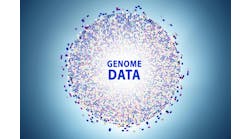The National Institutes of Health is now enrolling participants in a landmark initiative to advance nutrition research. Nutrition for Precision Health, powered by
The National Institutes of Health is enrolling participants in an initiative to advance “precision nutrition” research, powered by the the All of Us Research Program. The Nutrition for Precision Health (NPH) effort is working with 14 sites across the United States to engage 10,000 participants from diverse backgrounds and learn more about how our bodies respond differently to food.
NPH will use artificial intelligence-based approaches to analyze information provided by participants in order to develop algorithms that predict responses to dietary patterns. The study’s findings may one day allow healthcare providers to offer more customized nutritional guidance to improve overall health.
“Poor diet is one of the leading causes of preventable disease and death around the world. If everyone followed the healthy eating guidelines that we have available now, we still may not achieve optimal health because our bodies respond differently to food,” said Holly Nicastro, Ph.D., M.P.H., coordinator of NPH, in a statement. “Through this study, we are looking to better understand differences in individual responses and pave the way for more tailored guidelines in the future.”
Nutrition is important for the prevention and treatment of most chronic conditions and diseases, including hypertension, diabetes, and stroke. However, current dietary recommendations do not consider individual biological differences in how people respond to foods or ways and timing of eating. The goal of precision nutrition is to move from a “one-size-fits-most” approach to more specific recommendations that are based on each individual’s unique characteristics and environments.
NPH will study how a range of factors, including genes, lifestyle, health history, the gut microbiome (the community of microorganisms that live in the human gastrointestinal tract), and social determinants of health (the conditions in which people live, work, and age that affect health), influence a person’s response to diet.
To participate in NPH, individuals must be aged 18 or over and must enroll in or already be enrolled in NIH’s All of Us Research Program. All of Us is an effort that aims to engage at least 1 million participants in building a health database that reflects the diversity of the U.S., to help speed up medical research and enable individualized prevention, treatment, and care options.
Currently, the NPH study materials are available only in English. Spanish-language materials will be available at a future date.
The NPH study consists of three components. All study participants will participate in the first component, while a subset will take part in the other two components. In the first component of the study, participants will be asked to complete surveys, report their daily diets, and provide blood, urine, and stool samples for lab tests, including microbiome analysis.
In the second component, a subset of participants will be given diets selected by researchers. In the third component, participants will also be given diets selected by researchers but will be requested to reside in a research center while on the diets. Participants from all three components of the study will participate in meal challenge tests that measure biological changes after they consume a standardized study-provided meal or drink. Participants will receive interpreted information from the study on their health, including body fat percentage, microbiome makeup, metabolism, and diet composition.
NPH will link participants’ data from the study to information obtained through the All of Us Research Program, including genetics information and data from electronic health records and additional surveys. The study will leverage advances in AI to analyze this vast amount of data from participants to develop algorithms predicting how a person will respond to a particular food or diet based on various factors. All of this data will ultimately be accessible through All of Us’ data platform, the Researcher Workbench, to support many other studies on health and disease. Strict safeguards are in place to keep the data secure and protect participant privacy.
“Nutrition is perhaps one of the most powerful medicines we have available, but is among the least understood,” said Geoffrey Ginsburg, M.D., Ph.D., All of Us’ chief medical and scientific officer., in a statement “By tapping into the All of Us infrastructure and platform, NPH will be set apart from other nutrition studies by its scale and diversity. The value of NPH will be amplified by the research community as new data types are made broadly available in the Researcher Workbench to explore and advance our understanding of nutrition and health.”
NIH funded six clinical centers to conduct the study at enrollment sites in various regions of the country. These centers will implement the study modules and engage diverse communities to participate in NPH.


